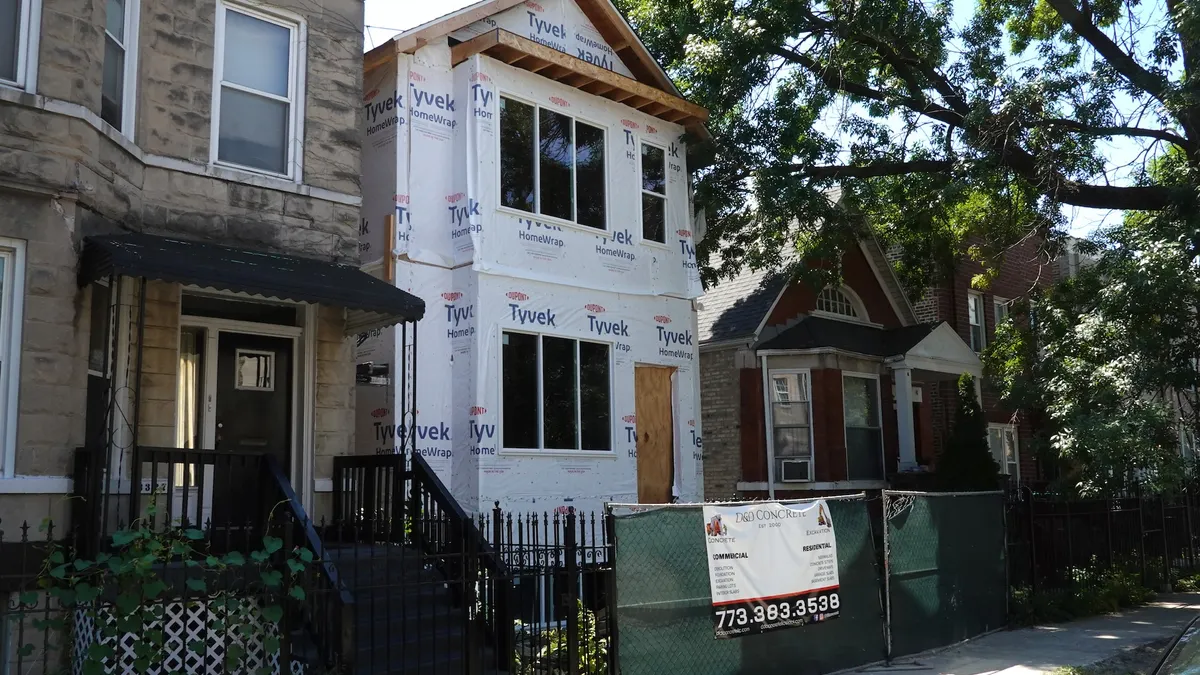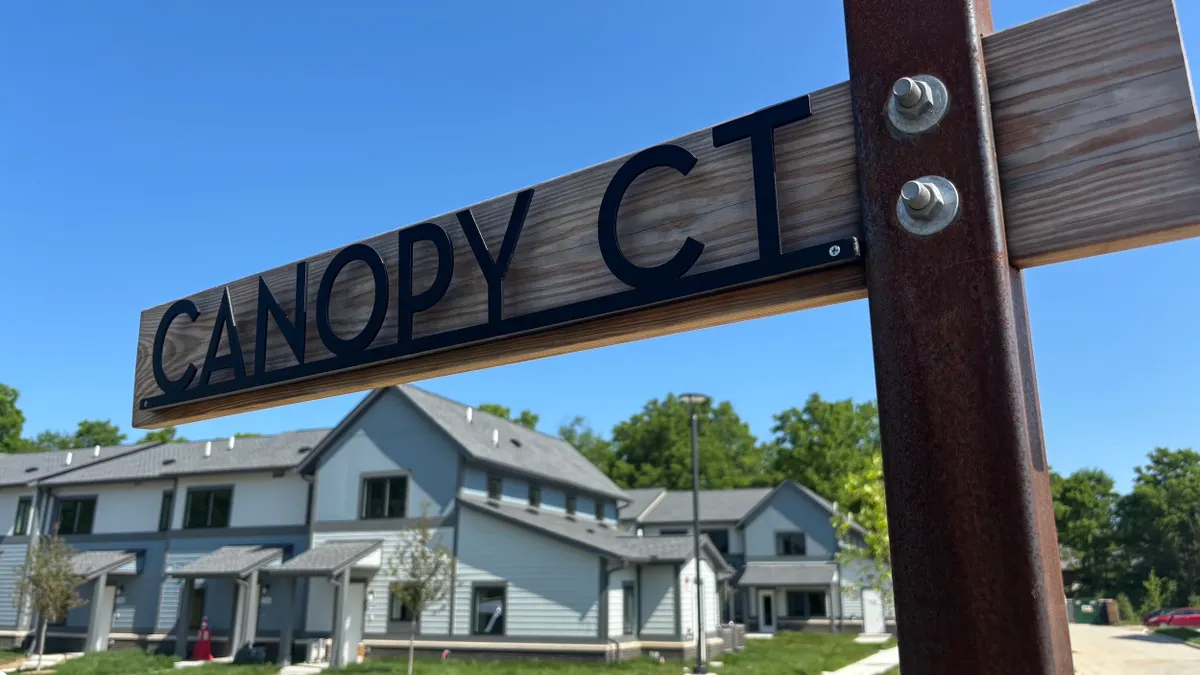When Atlanta-based private equity firm ACRE found out the 400-unit multifamily property it bought in Houston four years ago had been allowing about 80 residents to split their monthly rent into two payments, the regional manager wanted to put an immediate halt to the practice. ACRE COO Melanie Gersper told her to hold up; she was intrigued.
“I said, ‘I would love to know how many of those people are defaulting or getting evicted or paying late,’” Gersper said. “She called me back a few days later and said, ‘Zero.’ A huge light bulb went off, and I was like, OK, we may be onto something here.”

ACRE, which owns and manages about 7,500 workforce housing units in the South and Midwest, called in Brady Nolan, co-founder of Till, a rental payment platform that was providing short-term loans to renters at the time. Gersper told him she liked the idea of providing flexible payment terms but didn’t want to take on the administrative headaches that would entail.
Till responded with a Budget and Save program, which allows residents to break rent into more manageable, personalized payments while Till works with property owners and operators to ensure full payment on the first of the month, and Rent Protection, in which Till covers rent when residents are short. Since the programs’ inception, Till has signed more than 60 partnerships with companies that own or manage more than 1.4 million units and helped over 72% of delinquent residents catch up on rent payments after the first month of enrollment.
In late 2022, Marlette Holdings acquired Till and incorporated the programs into the Best Egg financial platform — a sure sign that the industry is maturing. As more and more companies compete to accommodate flexible rent payments, they’re becoming the norm rather than the exception.
“I think we were pretty pioneering,” said Gersper, who switched to working with Till’s competitor Jetty after Till was acquired. “And now there are four to six newer players in the space, so someone must be seeing a need for it, right?”
More Americans struggle to pay rent
As inflation pushes housing costs ever upward, more Americans are struggling to pay the rent. In 2021, Till found that 41% of all residents in workforce housing had been late at least once over the previous six months.
After staying consistent, at about 6 million, in 2020, 2021 and the first half of 2022, the number of American households that were behind on rent shot up to 8.5 million In the third quarter of 2022.

This may be because Americans are being forced to spend more of their incomes on rent. Brian Zrimsek, industry principal for Cleveland-based real estate software provider MRI, has collected data on rent-to-income ratios dating back to 2015, and he sees a disturbing trend. From 2015 to 2018, Americans spent, on average, 27.8% of their incomes on rent, then it shot up to 30.2% in 2019. In 2022, the average was 31.8%.
MRI recently got into the flexible payments game, partnering with Till just before it was acquired, and will begin offering flexible payment solutions on its platform in the first quarter of 2023. “It’s just the next good resident-centric kind of move,” Zrimsek said.
Flexible payment solutions are designed to address the imbalance between all the payments residents have to make on the first of the month — rent as well as utilities, car loans, insurance, etc. — and when people get paid (usually twice or several times a month).
But landlords need to be aware of the risk that “buy now, pay later” (BNPL) services could encourage residents to take on more expenses than they can afford and exacerbate money troubles, especially if they’re participating in other BNPL programs—which Bank of America predicts will grow by 10 to 15 times by 2025.
Landlords should also be aware of losing some control over their relationship with residents when a third party steps in, making dispute resolution more difficult and confusing. And if the third-party provider missteps or fails to deliver, it naturally reflects on their property. (Flex, for example, has racked up 43 pages of complaints with the Better Business Bureau.) The firm did not respond to Multifamily Dive’s request for comment about the complaints.
No cash flow risk
Still, flexible payment solutions offer plenty of benefit for property managers. They save them the time and hassle of chasing down late payments because, in most cases, providers pay the full rent upfront, and they don’t cost the property a thing (residents appear to be more than willing to pay about $15 to $20 per month for the privilege).
“I talk to property owners and managers, and they admit that 25 to 30 percent of people pay late, and they’re stuck chasing those late payments,” said Leslie Hyman, CEO of Brunswick, Maine-based Circa, a platform that charges 1.5% of rent (a fee it splits with the property) to create an automated payment system that lets residents pay in one, two or four installments throughout the month.

With Circa, residents pay a fee only if and when they can’t pay their full rent before the fifth of the month, and they can choose to use Circa for as few or as many months as they need. Circa will eventually charge properties an SaaS fee of $1 per unit per month, but Hyman said that is currently being waived for early adopters and whether it will be implemented will depend on timing, property size and level of partnership.
While most property managers are expected to meet KPIs on late fees, no one is measuring how much it costs to collect them, Hyman added. “We have managers who tell us we’ve saved them 30% of their time.”
Circa’s solution is unique in that it doesn’t float properties the rent but instead sets up and collects on a plan with residents. Most of the other services charge residents a monthly fee of about $15 to $20 to pay their rent in full on the first of the month, then handle collecting the rest. Till claims its service reduces the amount of time site teams spend on collections by 70%.
Stephen Baker, president and general manager of multifamily resident experience platform Zego, which partnered with provider Flex to add flexible payments in June, said flexible payment solutions benefit landlords by allowing them to offer the amenity “without putting their cash flow at risk and without any incremental burden on their staff.”
“We feel like it’s a win-win,” Baker said. “In addition to helping with retention, it’s a competitive differentiator — at least for the moment, until it becomes table stakes.”




















